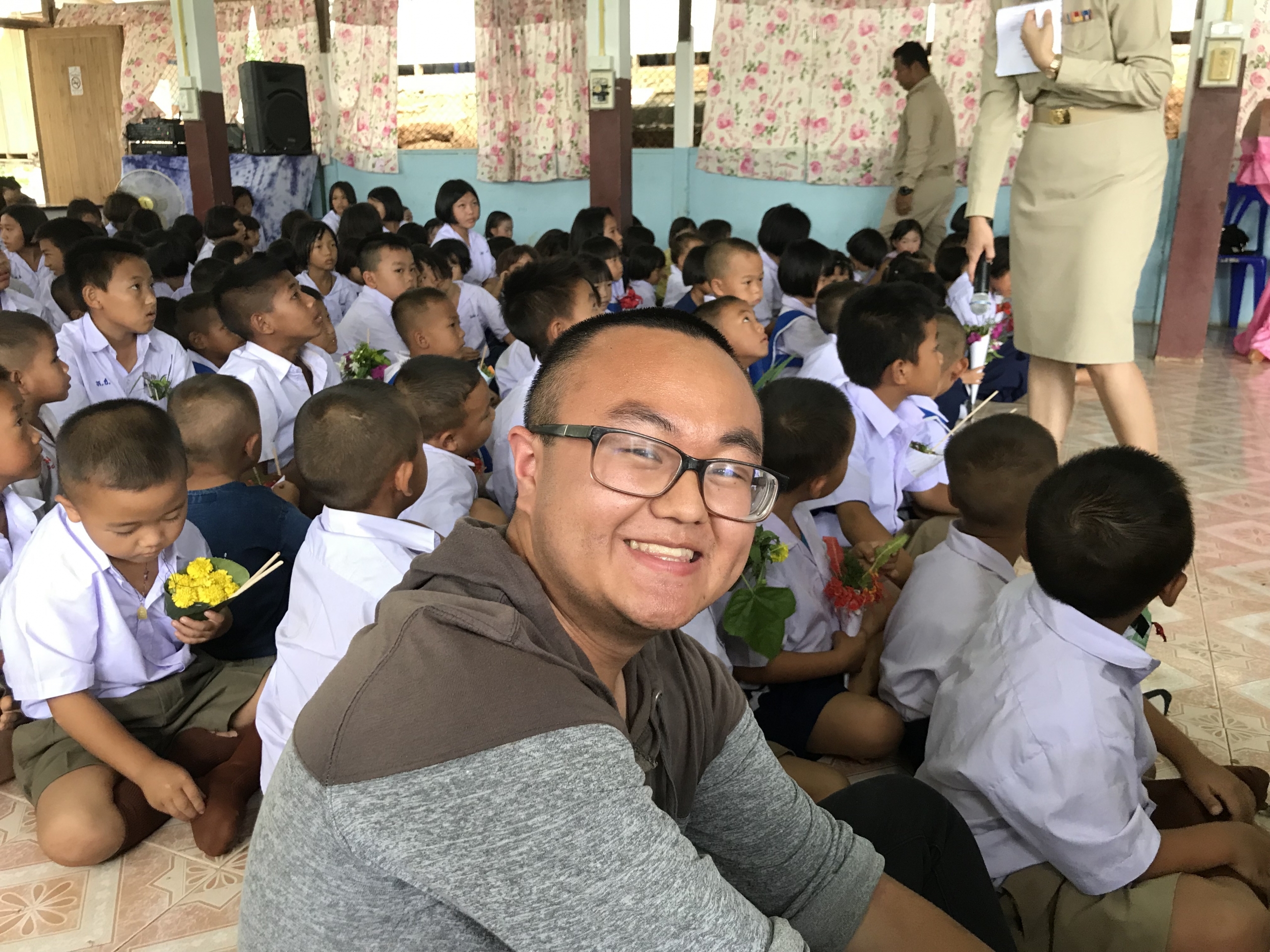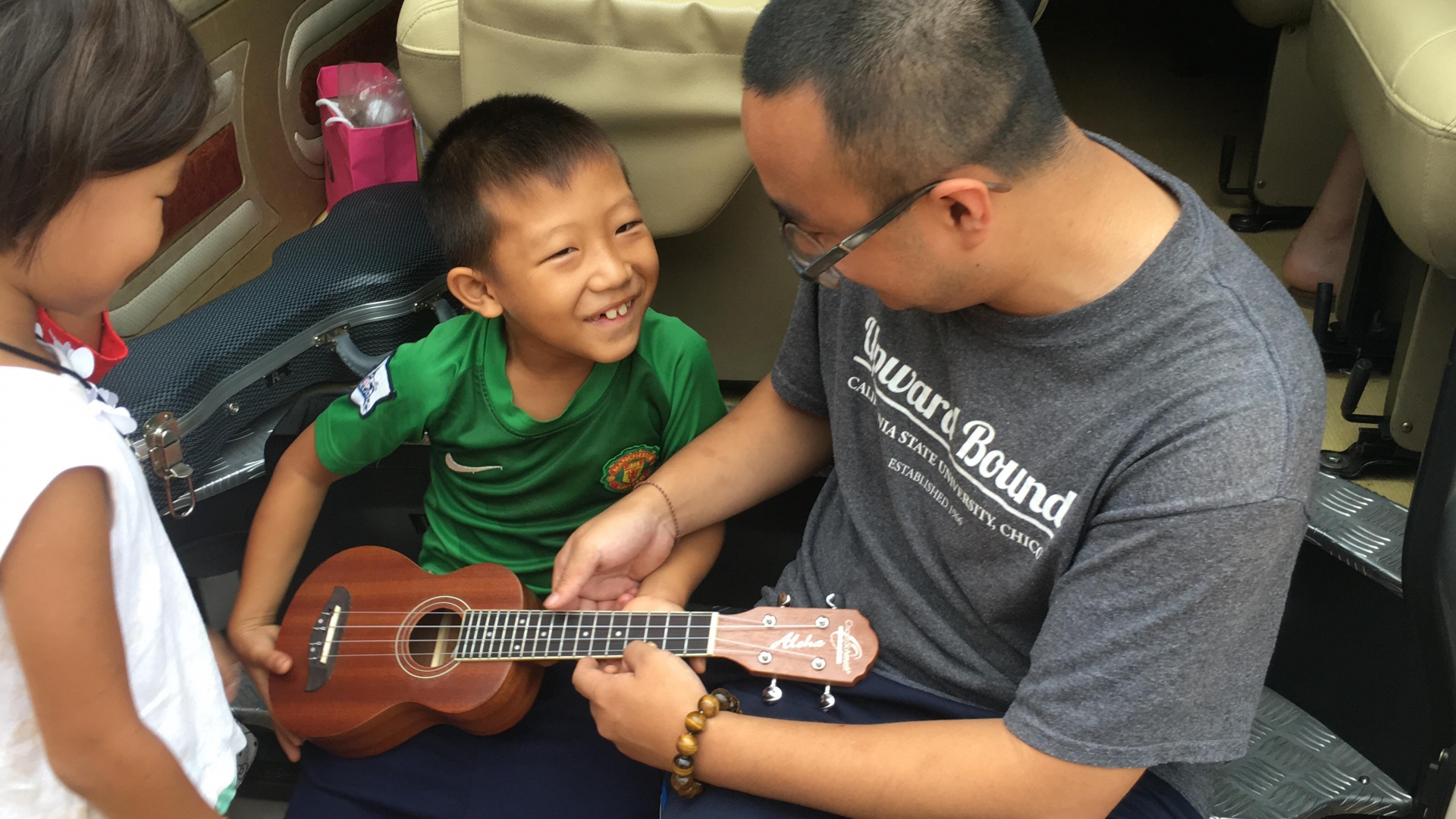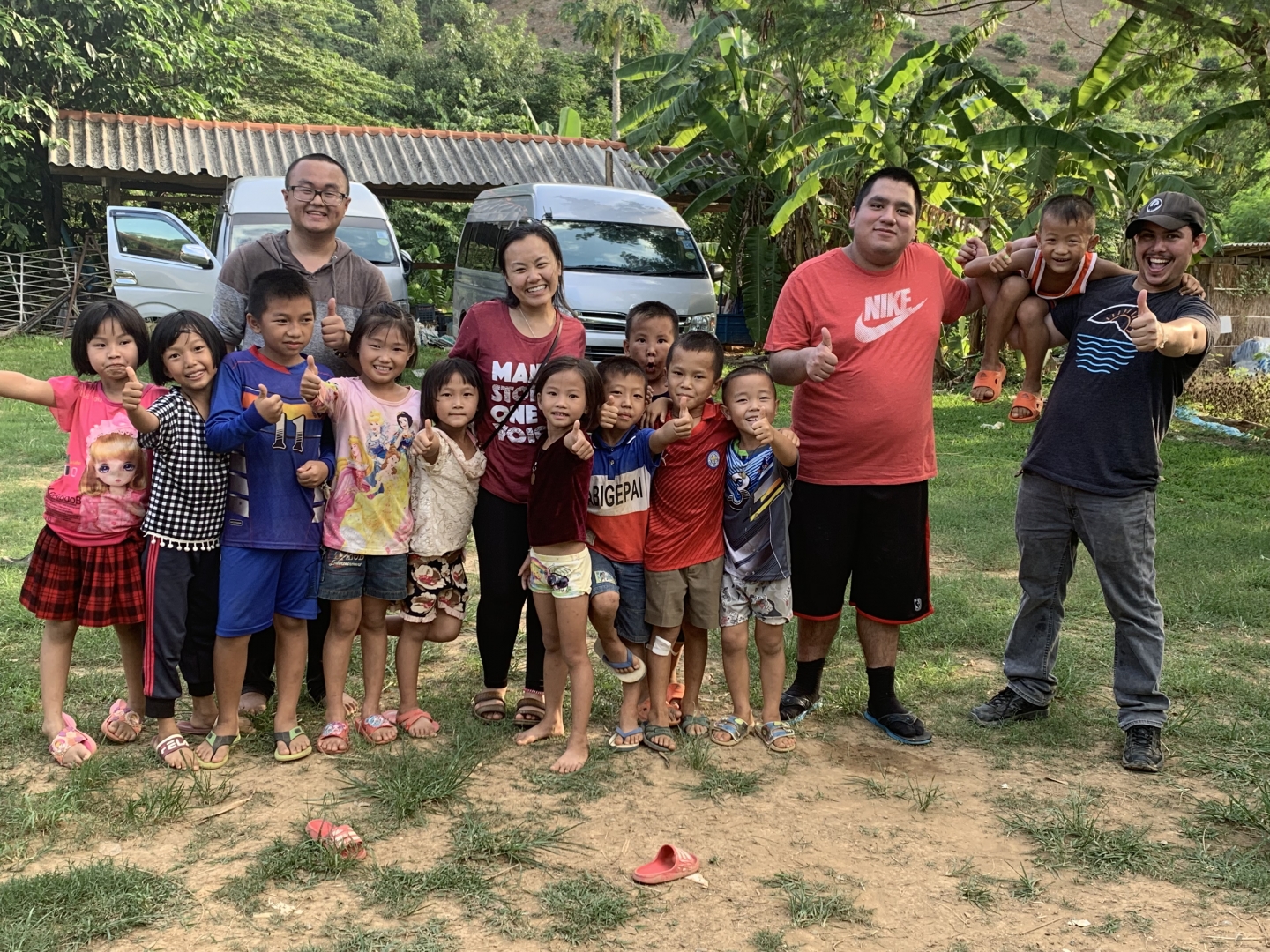Study Abroad Experience Ignites Self-Discovery

By English education major Pengcheng Xiong
When I was a child, my father always told me bedtime stories. Instead of traditional folk stories, he would recount his childhood in Laos and his struggles within the refugee camps in Thailand. I’d curl up in a blanket and close my eyes, fighting sleep to hear the end. My dreams were always of these mysterious places he had left behind.
I never realized it as a kid, but my father missed his home in Thailand dearly. Every day he reminded us to study hard so that we would never have to live as he did. In his stories, however, there was always a faint sense of longing.
In time, those feelings passed down to me, and I too longed for the lush wildlife and simplistic life he once had. But how could I long for something I never had? I was born in Chico, raised as an American. The question I always asked myself growing up was, “Who am I really?” This summer when I studied abroad, I looked for an answer to this question.
For four weeks, I returned near to the homeland of my family while enrolled in Chico State’s “Highland Peoples of Southeast Asia” course, taking place at Payap University in Chiang Mai, Thailand. I arrived on the first day carrying luggage and dreams of self-discovery. On the second night, I ventured around the campus looking for students to meet, and soon I was drawn to the sounds of music and singing from a building. There were many students gathered, and they invited me to join them in conversation. The students asked if I was Chinese, and I explained that I was Hmong. In my heart, I was quietly hoping someone would know, but everyone was puzzled. The students pleaded for me to speak a bit of Hmong, so I said “My name is Pengcheng Xiong. I am Hmong.” Everyone applauded except one person. A boy in the group stared at me with his brows furrowed. In his eyes, I felt the faintest sense of familiarity, and I knew what he was going to say before he said it. “You are Hmong, too?”

As it turned out, half of the students in the room were also Hmong. I did not think I would encounter Hmong students so soon. I was excited to meet others my age and see what their lives were like. As the night progressed, the only person who remained was the boy who spoke. I had so many questions to ask, but he talked first. He asked where I was from. I told him California. He asked what it was like. I told him there were large cities, not like the small villages he and his peers came from. He asked what I wanted to do when I finished school. I told him I wanted to teach English to Hmong students, in hopes of making a difference for Hmong people. And then he asked me why I came to Thailand.
I paused because I had trouble forming my response in Hmong. Would he understand if I told him I did not feel Hmong enough back home and that I was here to see the world, his world more specifically, that my parents left behind? I spoke from my heart, doing the best I could. When I finished, he explained his own conflicts being Thai and Hmong. He caught me off guard saying, “You are an example to us here. We are all struggling with this, yet here you are trying to resolve it. To meet you is a blessing. You are truly Hmong.” Finally, all the way on the other side of the world, I had met someone who understood me.
This sense only deepened as the weeks progressed. Further along into the program, we stayed in a Hmong village called Huay Hom in Phrae. When I arrived, the only words to describe the feelings were, “I’m home.”
The air was crisp and clear. The serene grace of nature was everywhere. All around me were the voices of small children speaking Hmong, something rare these days in America. These children are what I remember the most. They shouted for me and my fellow students to come play with them, excited to teach us all their games. I found myself climbing trees with them in search of bugs, catching small fish by the ravine, and playing tag. It was the most carefree atmosphere I had ever known. At night, I enjoyed the silence from a lack of cars and the magical flickering of fireflies. I was finally at peace, reliving a childhood I never had. These moments were what my father missed the most, and I now realize why.

On the last day, one little boy in particular clung tightly to me as we played. We sat together, and I asked him, “When you grow up, what do you want to do?” He replied that he was going to farm like his parents and grandparents did. I asked if he had ever thought about anything else, but he said farming was all that he knew. He liked school, but he didn’t know anything except for farming. In that moment, I remembered the words my dad always spoke to me about studying hard to avoid the life he had. I left a piece of my heart behind in that village as I sadly smiled and told him to study hard so he could live the life he wanted, be it farming or not.
Thailand was a beautiful place with many precious memories for me. It was everything like the stories I had listened to as a kid and more. Until I arrived in Thailand, those bedtime stories were only in my imagination. Until I stood gazing across the Mekong River, I was never able to truly connect with my parents on a personal level. And until I met both those my age and younger than me in Thailand, I never realized how fortunate I was to have the opportunity to achieve higher education. Although I’m certainly American, for me, Thailand will always be my home, the place where I truly discovered myself.
Pengcheng Xiong is a senior majoring in English education. He was raised in Chico by his parents, who emigrated from Thailand in 1985. In summer 2019, he traveled to Southeast Asia for an immersive program with 12 students, anthropology professor William Nitzky, sociology professor Chunyan Echo Song, and Student Learning Center staff Pa Vue and Yer Thao.
During the four-week program, with stops in Kunming, China, and Chiang Mai, Thailand, the students completed a “Culture and Tourism” course and “Ethnicity and Nationalism in Southeast Asia and China” course, as well as traveling on a dozen field trips and research excursions. Much of the trip to Chiang Mai and surrounding areas concentrated on the Hmong refugee experience, including a visit to refugee camps.
Another program is planned for summer 2020, which will continue this high-impact, hands-on fieldwork with different minority villages.


